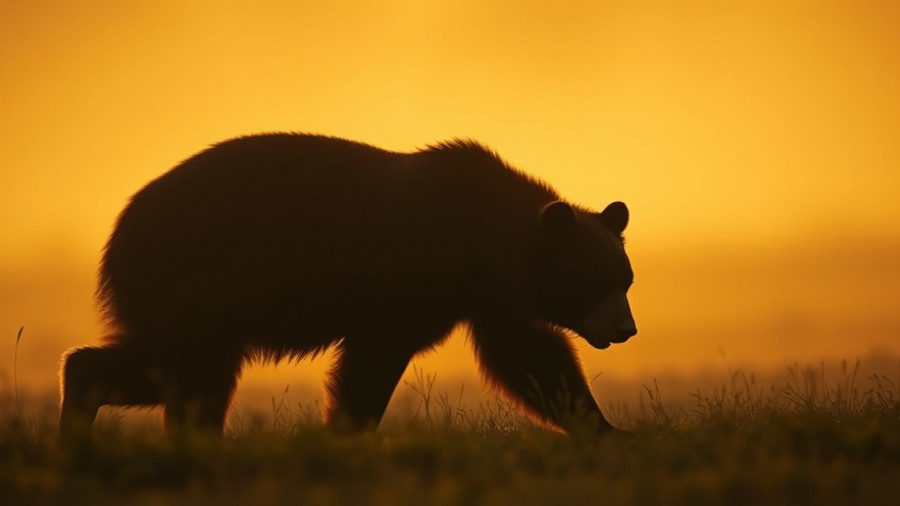
Understanding Black Bears: Nature's Silent Giants
In the lush tones of North Carolina's woodlands, the black bear emerges—from shadow to sunlight, from silence to significance. With their silent but powerful presence, they roam the state’s forests, particularly in areas like the Pocosin Lakes National Wildlife Refuge. A spectacle of nature, these bears have an elegant yet commanding role within the ecosystem.
Why Black Bears Matter
Not only do black bears intrigue nature lovers and wildlife enthusiasts, but they also play an essential role in their habitats. According to Colleen Olfenbuttel, a biologist who monitors black bear populations, these bears are vital due to their unique feeding habits. They act as scavengers, disseminating seeds and aiding the natural process of forest regeneration. Their omnivorous diet, which includes a mix of berries, nuts, and insects, supports not just their survival but the ecological web of North Carolina's natural world.
The Evolutionary Tale of the Black Bear
Bears evolved in an environment where they had natural predators. Olfenbuttel points out that their silence is a form of camouflage against foes like wolves and big cats that once roamed these lands. Today, the only remaining predator of the black bear is humanity itself. Each year, black bear meat finds its way to more than 600,000 plates across North Carolina, highlighting the intricate balance between admiration and hunting surrounding these magnificent creatures.
Bears and Their Habitat: A Fragile Coexistence
The northeastern segment of North Carolina is reported to have the highest density of black bears in North America. As urban development encroaches on natural habitats, it leads to increasing human-bear conflicts. Awareness and education on coexistence practices are vital, as emphasized by WNC Nature Center Director Chris Gentile. Efforts like bear-proof garbage cans are not just a proactive measure for communities; they're a means of preserving an iconic species.
What Lies Ahead for North Carolina's Black Bears?
The future may hold both challenges and opportunities for the black bear population in North Carolina. As public interest in wildlife conservation grows, so do initiatives aimed at preserving habitats and ensuring that bears thrive while safely cohabiting with humans. Increased community awareness and education can make a significant difference, paving the way for a symbiotic relationship between people and these incredible animals.
 Add Row
Add Row  Add
Add 



Write A Comment